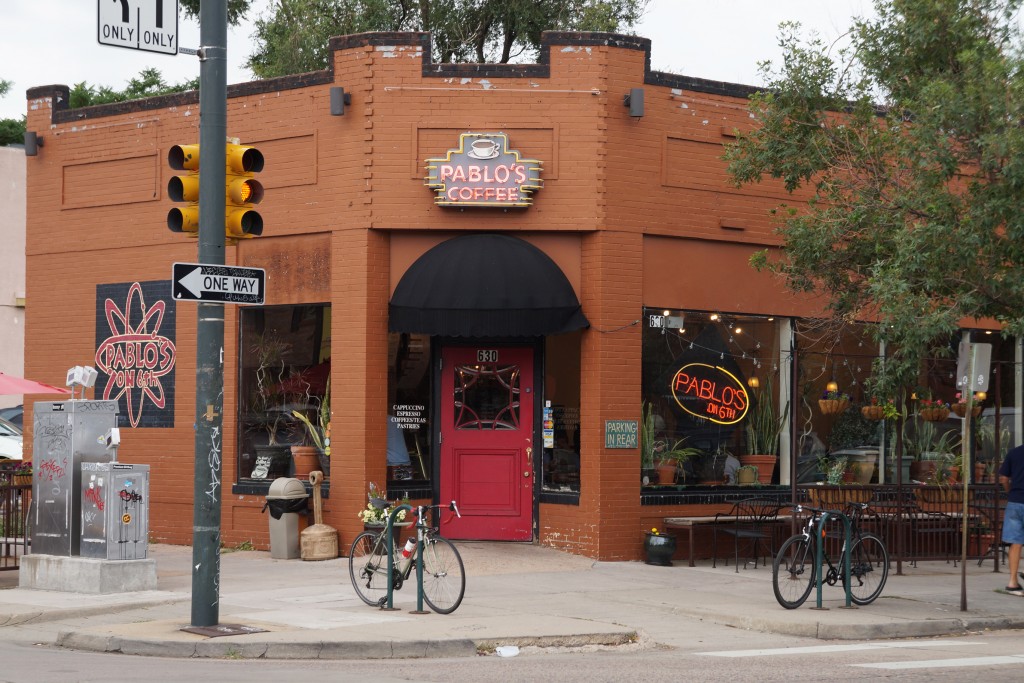Pablo’s Coffee has a sweeter product in the pipeline.
The Denver-based coffee roaster is searching for space to turn cacao beans (also called cocoa beans) into its own line of chocolate bars.
“Coffee and cacao go closely together,” said Craig Conner, Pablo’s owner. “They have similar characteristics and similar flavors, and there are not a lot of people doing bean-to-bar chocolate.”
Conner said chocolate makers have more control over taste if they produce bean-to-bar varieties, much like coffee sellers that roast the beans themselves.
“We’re good at roasting things to a specific profile and heat curve, and we can add a lot of value to a chocolate product,” he said.
Pablo’s, founded in 1998, has two storefronts in Cap Hill. Its coffee is also sold at Whole Foods and several restaurants and cafes.
Conner began researching chocolate about two years ago, as specialty chocolate makers began taking a larger bite of a $17 billion industry.
“There’s a real boom now in artisanal chocolate,” Conner said.
After two months of experimentation in its roasting facilities on Lipan Street, Pablo’s has developed a recipe for small batches. Conner said the company is looking to buy a warehouse or retail space for production, possibly in the Baker neighborhood.
Conner hasn’t yet purchased chocolate-making equipment, which he said could cost as much as $100,000. He said he’ll make that investment after securing the production space – but a chance to taste the goods could come sooner.
“We probably will mess with it and see if we can do it on a very small scale in the space we already have to see what people like about it,” Conner said.
When full-scale production begins, Conner said the company will make 2-ounce bars with at least 75 percent cacao content. That measure typically determines flavor intensity: The higher the percentage, the darker the chocolate.
“It really depends on the space and scale of equipment, but there’s a pretty easy market for a couple thousand units a week,” Conner said.
Pablo’s Coffee has a sweeter product in the pipeline.
The Denver-based coffee roaster is searching for space to turn cacao beans (also called cocoa beans) into its own line of chocolate bars.
“Coffee and cacao go closely together,” said Craig Conner, Pablo’s owner. “They have similar characteristics and similar flavors, and there are not a lot of people doing bean-to-bar chocolate.”
Conner said chocolate makers have more control over taste if they produce bean-to-bar varieties, much like coffee sellers that roast the beans themselves.
“We’re good at roasting things to a specific profile and heat curve, and we can add a lot of value to a chocolate product,” he said.
Pablo’s, founded in 1998, has two storefronts in Cap Hill. Its coffee is also sold at Whole Foods and several restaurants and cafes.
Conner began researching chocolate about two years ago, as specialty chocolate makers began taking a larger bite of a $17 billion industry.
“There’s a real boom now in artisanal chocolate,” Conner said.
After two months of experimentation in its roasting facilities on Lipan Street, Pablo’s has developed a recipe for small batches. Conner said the company is looking to buy a warehouse or retail space for production, possibly in the Baker neighborhood.
Conner hasn’t yet purchased chocolate-making equipment, which he said could cost as much as $100,000. He said he’ll make that investment after securing the production space – but a chance to taste the goods could come sooner.
“We probably will mess with it and see if we can do it on a very small scale in the space we already have to see what people like about it,” Conner said.
When full-scale production begins, Conner said the company will make 2-ounce bars with at least 75 percent cacao content. That measure typically determines flavor intensity: The higher the percentage, the darker the chocolate.
“It really depends on the space and scale of equipment, but there’s a pretty easy market for a couple thousand units a week,” Conner said.


Can’t you already make chocolate out of coffee beans? Otherwise, I’m really excited for this new feat.
Sounds exciting! Definitely gonna visit Pablo’s Coffee during my next visit to Denver!